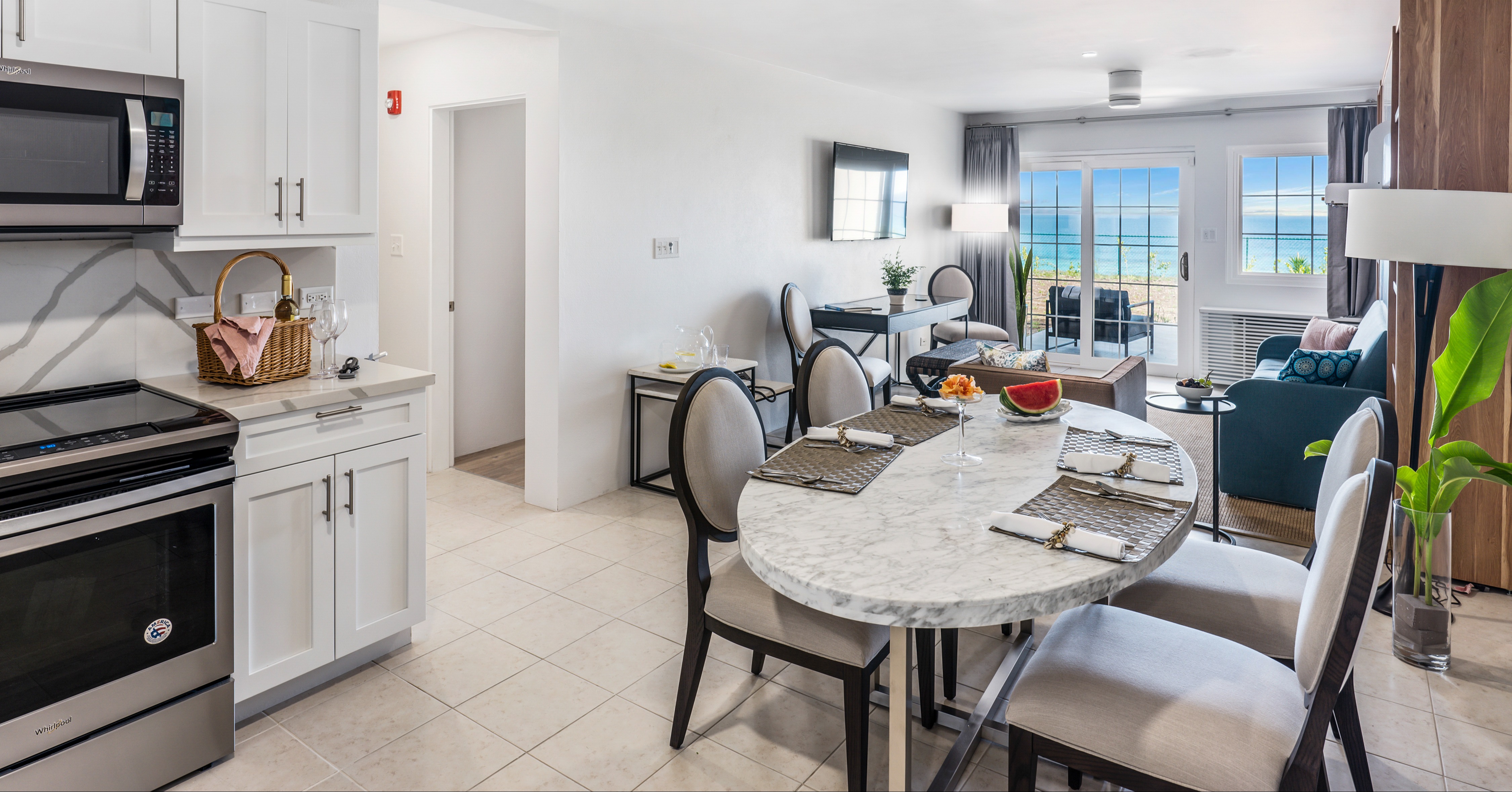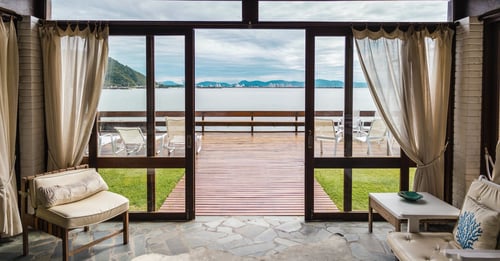Timeshares and vacation home ownership are popular options for those wanting to buy a vacation home. Yet, each has distinct advantages and disadvantages depending on your budget and lifestyle.
Here we compare buying usage rights in a timeshare property versus actually owning a vacation home. From appreciation to usage, we discuss it all so you can make the most informed purchase decision.
Disclaimer: This blog is intended for informational purposes and shouldn't be used as a substitute for financial advice.
What Is a Timeshare?
A timeshare is where several people share usage rights in a property for vacation purposes. Usually, timeshares are in resort settings, so those signed up also get access to resort amenities. These can include amongst other things golf courses, spas, health and fitness facilities, restaurants and bars.
You buy a legal “right to use” a property owned by someone else for an agreed period of time each year and for an agreed number of years. This is often 25 years but sometimes the right to use is perpetual. Your right tod use will be for a set length of time - often in weekly chunks. There are no deeded title exchanges in a timeshare transaction.
You can rent out your week if you are not using it and can resell your timeshare period. But the “time” you have bought is a depreciating asset, and you will not get back what you paid for it. At the end of the right-to-use year period, the “right to use” simply expires.
What Is Vacation Home Ownership?
Vacation home ownership is where you own a property in a sought-after vacation area. This can be for your individual use but you can also rent your property out on a holiday let basis to create a separate revenue stream. Vacation homes are found in many different environments, from pink-sandy beaches to snowy alps.
Timeshare vs Vacation Ownership: Which Wins?
There are many reasons why people choose vacation home ownership, and why timeshare can also be an attractive option. Decisions are usually made based on budget, intended usage and future plans. Vacation home ownership generally makes more financial sense. But timeshares are still a legitimate option from a lifestyle perspective.
Read on to find out which option sounds most promising according to your priorities.
With over a million timeshares on the market at any given moment, it can also be challenging to exit timeshare ownership when your time is up.
Purchase Price and Financial Appreciation
Timeshares: lower entry cost and annual running costs - but a depreciating asset
The good news is that the cost of buying a timeshare is generally quite low. Certainly compared to buying a second home outright. But when it comes to financial appreciation, timeshares draw the short end of the straw. With timeshares you own usage rights and not deeded title.
Furthermore, you remain responsible legally for annual service charges and these can increase significantly in the years after you buy. The clock is also ticking on your usage rights period. Together these factors weaken buyers’ resolve when you come to sell and so, from the moment you buy a timeshare, it starts losing value. A bit like buying a car.
With over a million timeshares on the market at any given moment, it can also be challenging to exit timeshare ownership when your time is up.
Wholly-owned Vacation Homes: higher entry cost and annual running costs - but income from rental and an appreciating asset
On the other hand, when you buy a vacation home you wholly-own an asset that is likely to appreciate in value over time, particularly if you buy in a prime location. Obviously you own it, so you can stay in it whenever you want, year-round, year after year. If you only use it for 6 weeks a year, say, the other 46 weeks are available for rent.
So, not only should your home be worth more than you paid for it when you come to sell, it should also be contributing to annual costs, and, in some cases, making a financial return while you own it.
This is more appealing to buyers when you come to sell so selling a wholly-owned vacation home is generally way easier than selling a timeshare.
Usage
Timeshare Fixed Weeks and Floating Time
Timeshare is offered on either a fixed week or “floating time” usage basis. If you buy floating time you can use your allotted time within a seasonal window rather than a specific week as with fixed week purchase. The time you buy is the time you use. If you don’t use it, you can rent it to someone else, or it lapses. The money from renting out may cover your annual service charge, but you won’t have the use of your property and any return is likely to be insignificant.
Consequently, there’s no way to make a decent financial return from your vacation home and little flexibility when it comes to booking last-minute.
Hotel Condominium - the middle ground
There is a hybrid type of vacation home ownership that offers some middle ground. It’s called Hotel Condominium or condo-hotel. Here, typically, you wholly own your property and have the option to stay three months each year.
Hotel Condominiums mostly come with a full-blown rental service. So, any time you are not there you can rent out through the hotel rental program. Some operate rentals through a hotel brand like Hilton - Bermudiana Beach in Bermuda with its Hilton Tapestry Collection rental program is a great example of this. Renting through such a program means you don’t have to worry about marketing your property. Nor do you have to worry about checking your guests in and out, or housekeeping and laundry services etc. This is all done for you by the hotel rental service.
Hotel Condominiums also generally come with a full management company, so you don’t have to worry about repairs, maintenance and the upkeep of your property.
If that’s of interest to you then owning a condo at Bermudiana Beach Resort could be what you are looking for.
Consider All Vacation Home Purchase Options and Learn How to Buy Your Perfect Vacation Home
The lower entry cost of timeshare is appealing for some, but this is a sunk cost and you won’t get much of it back when you come to sell. You will then also have annual running costs, but no income to offset them.
With a wholly-owned vacation home entry cost is higher, but homes generally appreciate in value by the time you come to sell them. Furthermore, because you can rent out weeks you don’t use yourself, rental income will offset annual running costs and can even create an additional income stream for you.
It’s always wise to consider your budget, lifestyle and other barriers such as local laws and see if buying a permanent property is feasible for you.
But the bottom line is this: vacation rentals win in a one-on-one with timeshares.
If vacation home ownership appeals to you, you’ll also need to dig deeper into the best way you can rent your property out. Choose between traditional DIY to more comprehensive Hotel Condominium options where everything is Done For You. The good news? Our guide will tell you everything you need to know.
Consider All Vacation Rental Options and Learn How to Enter the Property Rental Market
If you can make a vacation rental work, you’ll also need to dig deeper into ways to enter the property rental market, from fractional ownership to more comprehensive Hotel Condominium options. The good news? Our guide will tell you everything you need to know.
Click the link below to come one step closer to making an informed investment decision ― all while considering the benefits of buying your vacation rental on the beautiful island of Bermuda.






